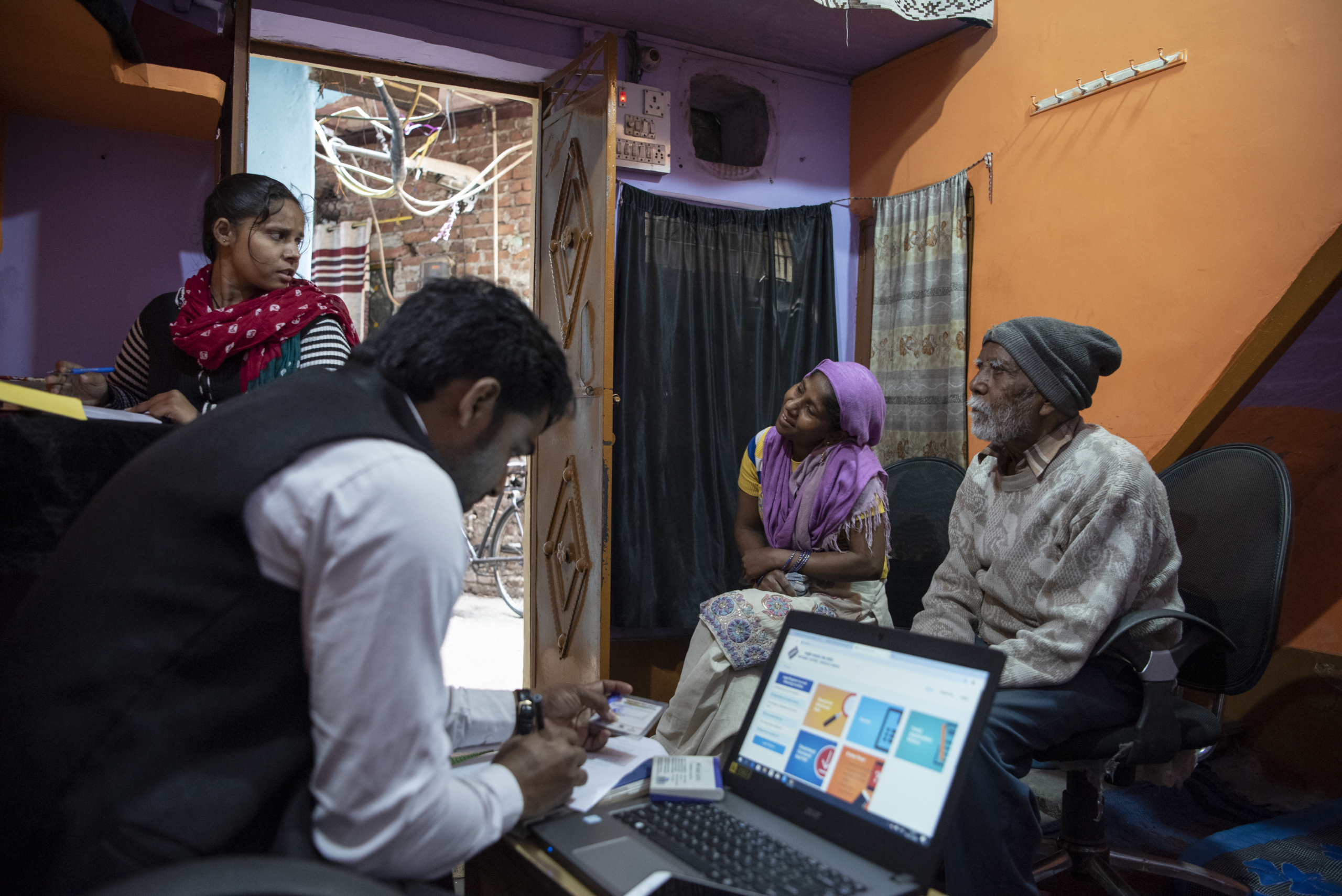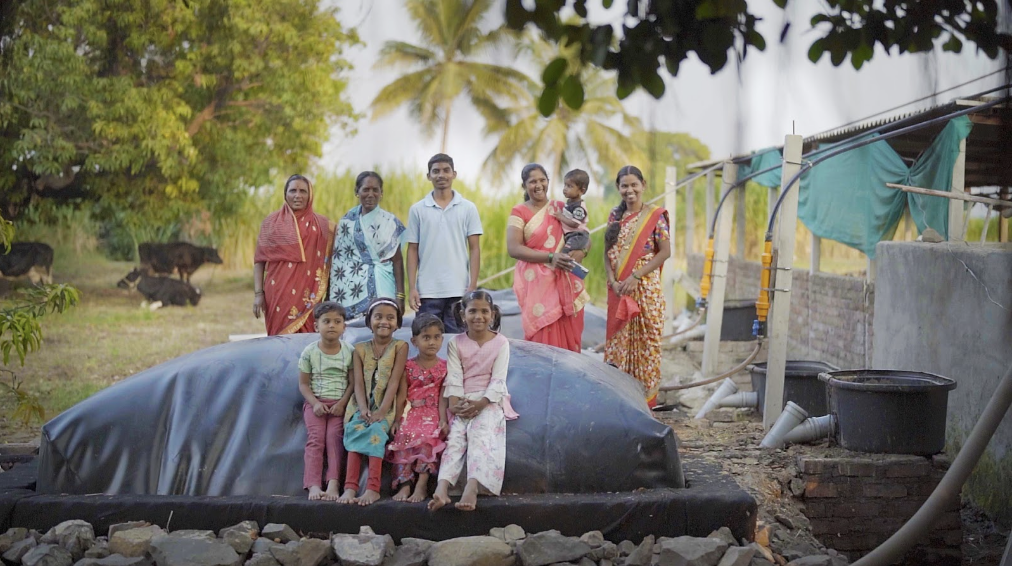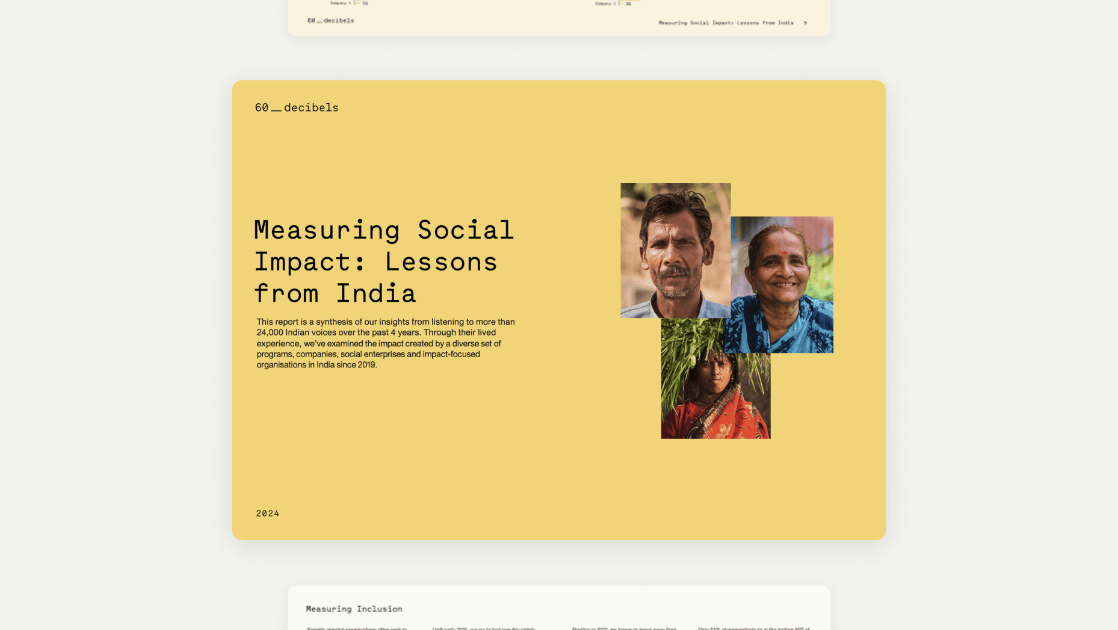
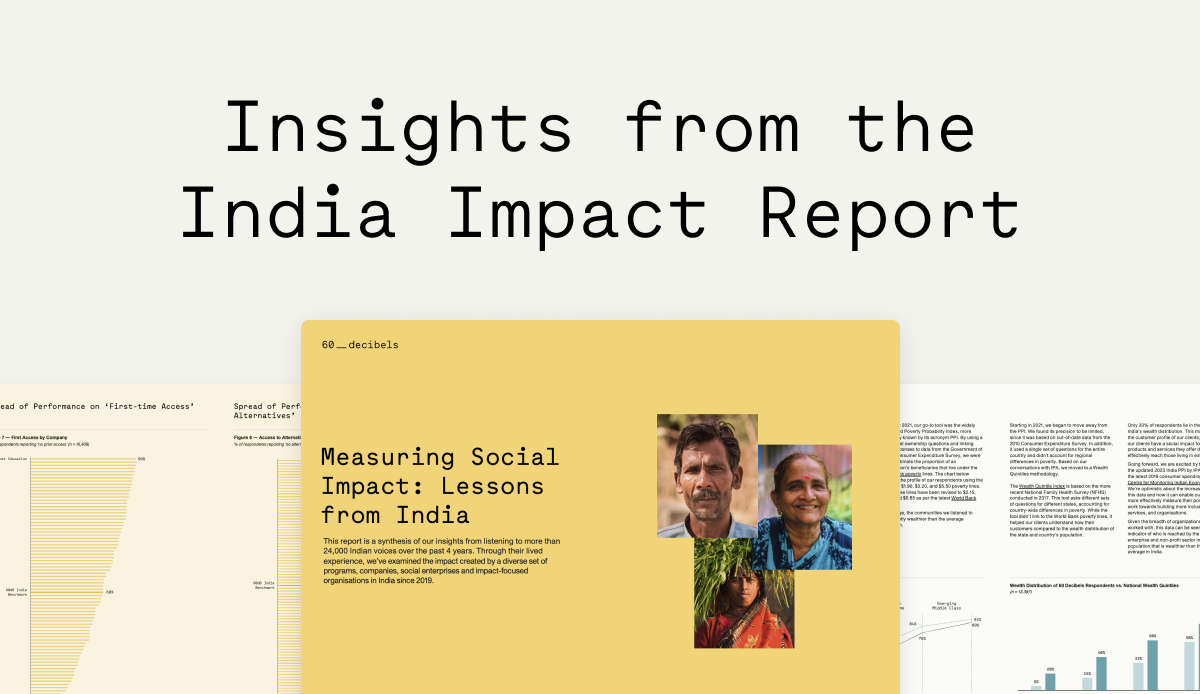
Unlocking Social Impact in India: Key Insights on the State of Impact Measurement
India’s journey towards social impact is both inspiring and complex. We recently released our India Impact Report, gathering insights from over 24,000 respondents across 28 states. Following the report launch, we hosted a webinar with three socially-minded organizations to discuss the current state of inclusive development, impact investing, and impact measurement in India.
The panel was moderated by Pranav Sridhar (Head of Sales, Europe & Asia at 60 Decibels) and joined by Alekh Sanghera (Co-founder/CEO, FarMart), Tinni Sawhney (CEO, Aga Khan Foundation), and Divya Pinge (Head of Research, Impact Investors Council (IIC)). Here’s a recap of what was shared about the strategies and challenges in driving meaningful change in India.
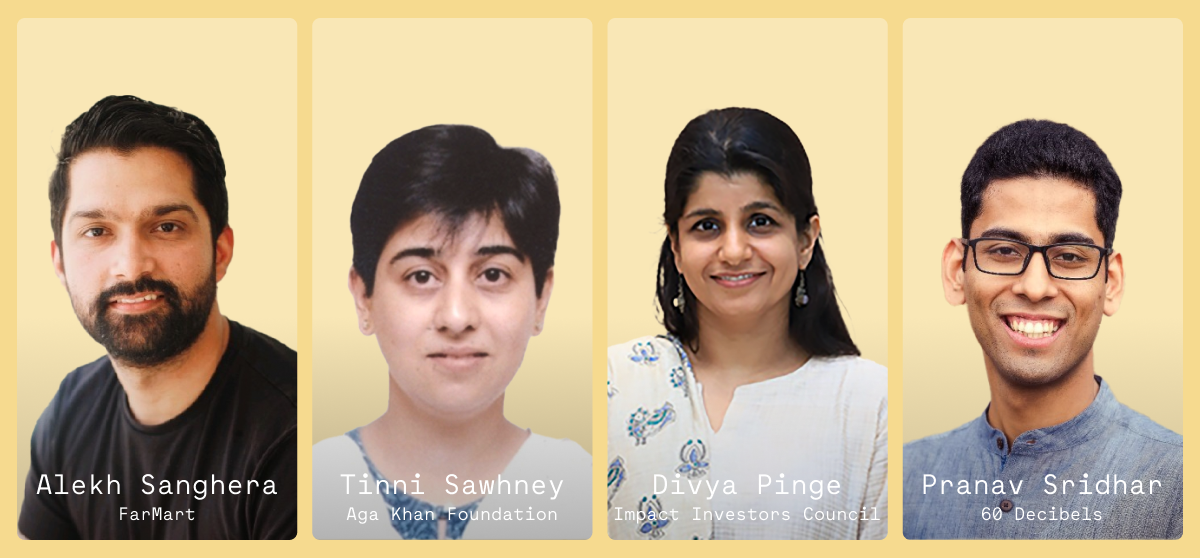
Balancing short-term and long-term impact
Balancing immediate needs with long-term sustainability is crucial to ensuring social initiatives create lasting impact. Project Mesha, a women’s economic empowerment program from the Aga Khan Foundation, demonstrates this by addressing societal norms that limit women’s mobility. By working with communities to change these norms, the project empowers women economically in the short term and promotes lasting change by minimizing barriers to autonomy.
Immediate gains need to be paired with long-term efforts to maintain infrastructure. This is demonstrated by the work of the Aga Khan Foundation on providing water – in the short term, people want access to clean drinking water, but there is the long term effort in terms of the operation and management of this infrastructure to consider. Involving communities in sustainable management ensures that initiatives are shaped by those directly impacted by leveraging their wisdom and firsthand experience.
Utilizing third-party measurement for impact management
External, independent reviews offer an unbiased perspective on program effectiveness and overall social impact, ensuring organizations stay accountable to their mission and the communities they seek to serve. Alekh commented that internal assessments can sometimes be inundated with numbers and KPIs, that is why independent, third-party assessments such as 60 Decibels are crucial for accurate monitoring. FarMart uses third-party evaluations to verify their network’s value to customers. This external perspective, combined with internal metrics, helps track performance trends effectively and becomes integral to discussions with senior leaders and investors.
Tinni shared that whilst some quantitative insights (outputs) can be produced internally, using a third-party to collect the unbiased, outcomes-based qualitative data is best practice. The Aga Khan Foundation combines both the quantitative data and the qualitative insights to identify challenges such as safety concerns for women working in remote areas. This has led to interventions like self-defense training which in turn boosted women’s confidence driving greater program impact.
Periodic measurement over time enables a deeper understanding of depth of impact and how impact performance is evolving. By consistently measuring their impact, organizations gather data that reveals the true effects of their initiatives. This ongoing process allows for adjustments to improve products and services, ensuring they effectively address the evolving and unmet needs of communities.
Challenges facing impact measurement in India
Aligning expectations and frameworks
Challenges arise in aligning expectations among different stakeholders. LPs expect detailed reporting from GPs, who in turn need data from investee companies tailored to specific sectors and geographies. Many existing frameworks are not designed around the Indian context and therefore requiring additional, custom metrics that reflect local conditions.
Adapting international frameworks to the Indian context is essential. Incorporating India-specific nuances ensures that the impact measurement is relevant and actionable. This approach respects the unique socio-cultural and economic landscape of India while aligning with global standards.
Different sectors require different approaches to impact measurement. Healthcare, agriculture, and climate change each have unique metrics. Developing tailored frameworks that recognize these differences can lead to more accurate and actionable insights.
Creating shorter, non-extractive evaluation systems
Sharing findings with the community ensures transparency and allows for input in shaping future interventions. After observing that water levels in wells rose due to conservation efforts, the Aga Khan Foundation shared this information in community meetings. This transparency enabled the community to discuss and implement measures for efficient water use. This participatory approach not only validates the data collected, but also reinforces the community’s role in sustaining and enhancing the impact of interventions.
Advocating for shorter, more frequent impact measurement can enable timely course corrections. Simplified measurement can better inform implementation strategies, ensuring that interventions remain relevant and effective. This approach also leads to impact management that is more dynamic and responsive.
The webinar provided invaluable insights into the current and future state of social impact measurement in India. By embracing diverse metrics, aligning stakeholder expectations, and focusing on both short-term and long-term goals, organizations can enhance their social impact measurement and in turn create deeper impact. As India continues to evolve, the collective efforts of stakeholders across sectors will be crucial in driving meaningful and sustainable change.

